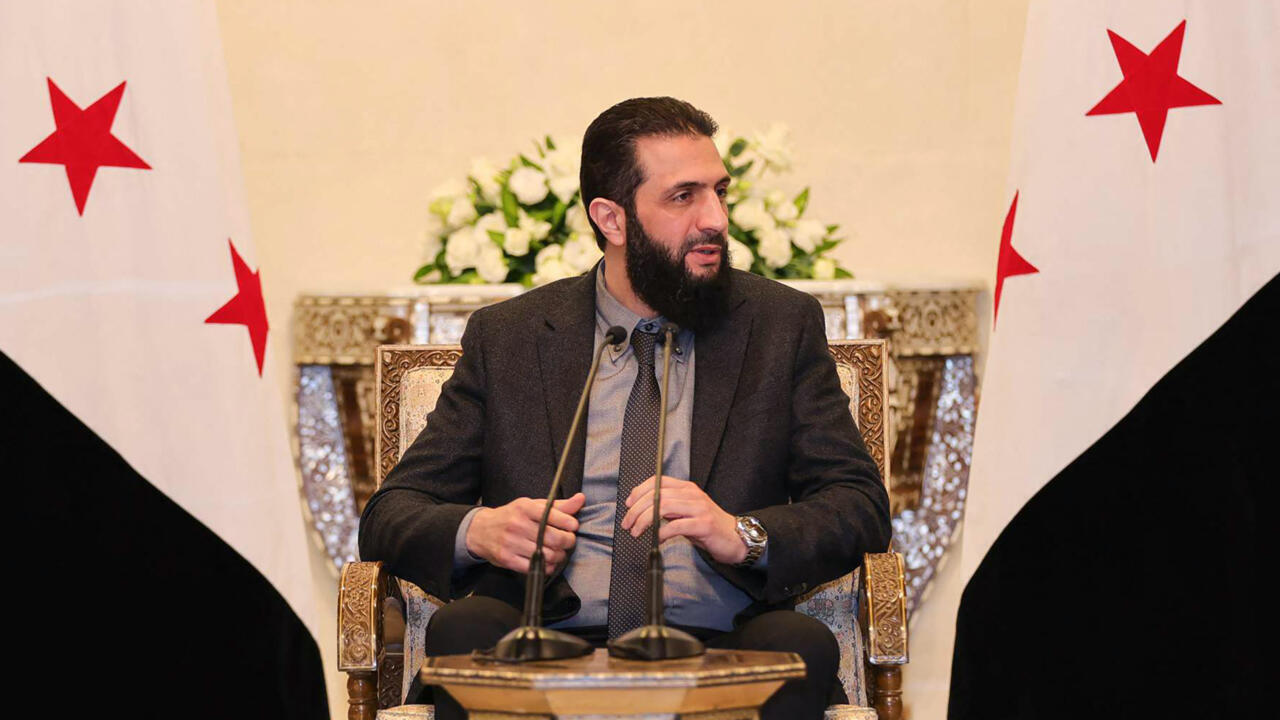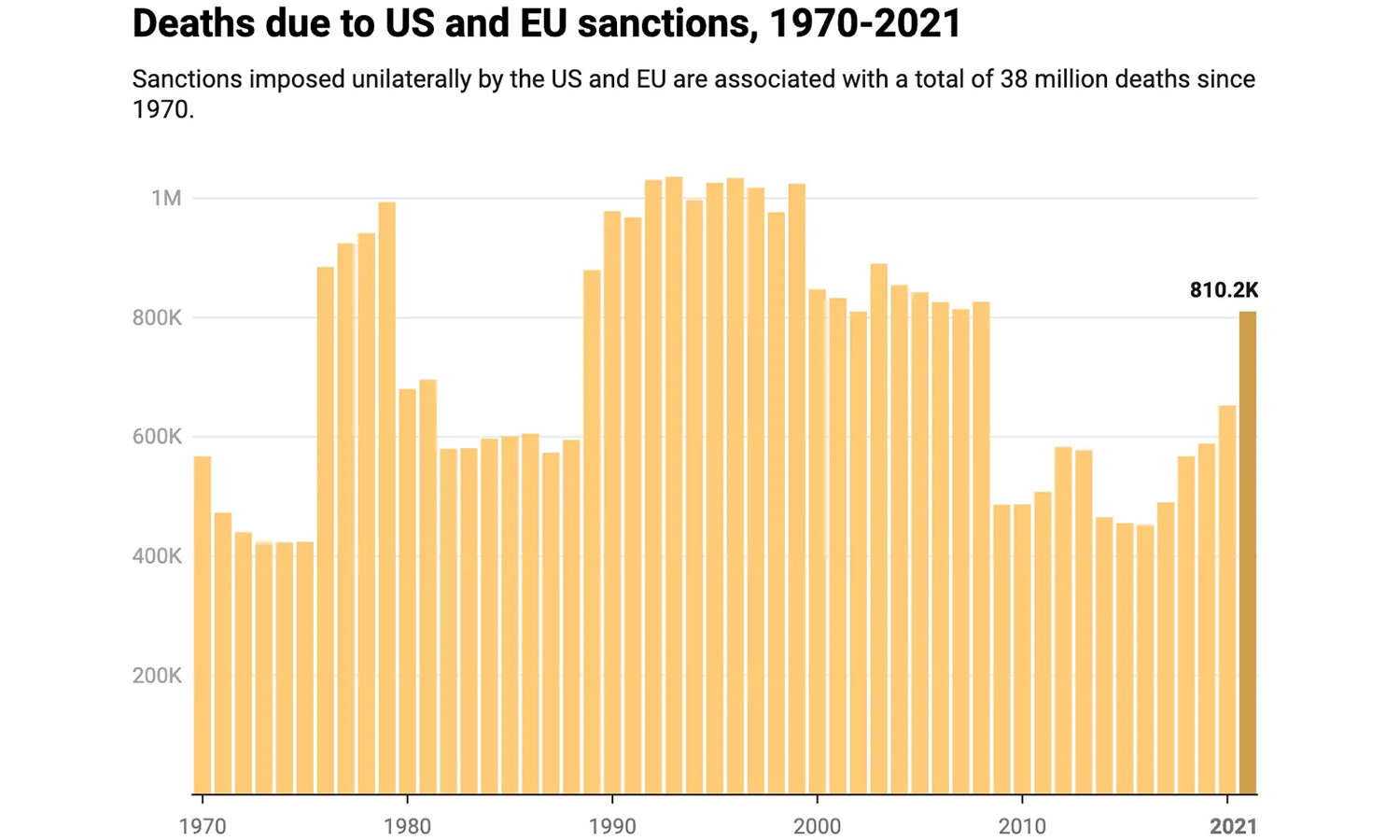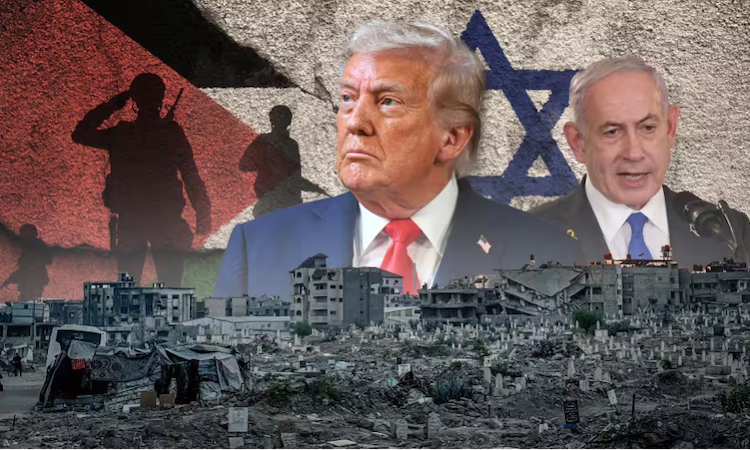US imperialism, having failed in its mission to topple Syria’s legitimate leadership, is now reduced to acting like the proverbial dog in the manger. It cannot, through its cowardly combination of proxy forces and aerial terror, win the war which it orchestrated from the first. Yet it cannot live with its failure either, and so prolongs the war in the vain hope that somehow it can still find a way to meddle in the future of Syria after the war.
To this end, all its efforts, military and diplomatic alike, are bent on obstructing the liberation forces and trying to undermine all progress in the direction of a political settlement that fully respects the independence and unity of the Syrian Arab Republic.
Jihadis regroup in areas under US control
In a recent overview of Syria’s war against terror, the head of the Russian general staff, Valery Gerasimov, told a meeting of foreign military attaches that “the Isis [Daesh, Islamic State] militants are present in territories east of the Euphrates, controlled by the USA”, whilst “the rest of the radical armed formations led by Jabhat al-Nusra are concentrated in the Idlib de-escalation zone and al-Tanf area, controlled by the US-led international coalition”. (General Valery Gerasimov holds briefing for foreign military attaches, Ministry of Defence of the Russian Federation, 5 December 2018)
Whatever the professed intentions of the US coalition might be, objectively their continued uninvited and illegal presence in Syria constitutes the single biggest obstacle to the final liberation of the country from the jihadi menace. With most of the country back in the government’s hands and the major terrorist groups on the run, the clear incentive is there for wavering elements to put down the gun and engage in dialogue.
Yet US imperialism acts in such a way as to give fresh heart to the diehards, training anti-government terrorists in the US base at al-Tanf on the Baghdad-Damascus highway (close to the Iraqi border in southeast Syria) whilst Daesh flourishes unmolested under US protection on the eastern bank of the river Euphrates (the northeast corner of the country, bordering Iraq on the southern side and Turkey to the north; see map of Syria).
When the US does go through the motions of attacking Daesh, it manages to ‘accidentally’ attack positions of the Syrian Arab Army (SAA) at the same time.
This happens with monotonous regularity. At the beginning of December, the US-led coalition claimed to have targeted a high-ranking Daesh commander and other Daesh personnel. What they failed to mention, but was picked up by local media, was that the ‘pinpoint attack’ also involved missile strikes against SAA positions in the eastern Homs countryside (western Syria).
Whilst the US record of combatting terror has been unimpressive, its record of wiping out ‘collateral’ civilians is egregious. At the end of October, the Russian military calculated that in the space of just one month over 120 civilians had been slaughtered by indiscriminate ‘coalition’ bombing in eastern Syria.
A year on from the imperialist bombing of the city of Raqqa (north-central Syria), bodies are still being dragged out from the rubble. In June 2018, Amnesty International issued a report concluding that civilians were trapped in Raqqa while the US-backed and Kurdish-led ‘Syrian Democratic Forces’ (SDF) fought the jihadis, backed by multiple US airstrikes.
In that case, the indiscriminate slaughter was a direct consequence of imperialism’s blind haste to plant the Stars and Stripes in Raqqa before the Syrian army could return the city to governmental control.
The US coalition’s murderous blundering in Raqqa contrasts starkly with the combination of extreme patience and firm resolve with which Syrian government forces and their Russian allies are working to minimise civilian suffering in the liberation of Idlib (northwest Syria).
Not only does the US air force’s (USAF) sledgehammer approach, including the illegal use of white phosphorous incendiaries (a banned chemical weapon), pay scant regard to the cost in the lives of civilians, it even exposes its own SDF allies to ‘friendly fire’. And for all the USAF’s covering fire, the SDF has been suffering serious setbacks in fighting around the Hajin pocket east of the Euphrates.
The reality is that neither the US nor its rent-an-army Kurdish allies are fixated primarily on the defeat of Daesh. Rather, the Kurds are fighting for the mirage of a ‘Democratic Federation of Northern Syria’ with its own Kurdish government lording it over Arab tribes; whilst the US is tacitly encouraging this mirage as it plays into its own balkanising plans, with the fantasy of a pliant Kurdish statelet ready to do Washington’s bidding, Israel-style.
Kremlin spokesman Dmitry Peskov offered a stiff rebuff to all such daydreams, saying: “We are absolutely against all measures on the territory of Syria that could lead to an emergence of ‘quasi-state’ formations, which could subsequently damage the territorial integrity of Syria.” (Russia warns of ‘quasi-states’ emerging in Syria, Al-Masdar News, 4 December 2018)
Whilst clearly aimed primarily at Washington’s Kurdish meddling, Peskov’s words perhaps also serve as a gentle reminder to Turkey not to revert to playing at imposing Ottoman enclaves run by its ‘Free Syrian Army’ (FSA) stooges. On the same occasion, he also noted that the formation of the demilitarised zone in Idlib “is now a bit more complicated than it seemed before”.
And in the press conference following the G20 summit of world leaders, Russian president Vladimir Putin chose his words with care, saying: “We are concerned over the situation in Idlib. We see that our Turkish partners cannot achieve some things, but they are working, it is true. We see that they are working on the creation of a demilitarised zone, but we hope that our special services and the Ministry of Defence will resolve this issue in the nearest future.” (Work on Syrian constitutional committee continues, TASS, 2 December 2018)
Syrian Arab Army clears out a rats’ nest in Al-Safa Canyon area
For their part, unburdened by any ambiguity over who the real enemy is, Syrian forces continue to advance steadily. On 19 November it was announced that the entire Al-Safa Canyon area, in the south west near the border with Jordan, had been liberated from Daesh, with an enemy death toll of over 270, the elimination of a key Daesh leader and the capture of weapons, ammunition, shells, landmines and a dozen TOW anti-tank guided missile launchers.
The SAA pulled off this feat in the face of an enemy whose ranks had been swollen over several months by recruits from the US-controlled al-Tanf area, and which was armed to the teeth. The government’s tanks and heavy artillery had limited manoeuvrability and were under attack the whole time by US-made TOW anti-tank missiles and grenade launchers, but, after bitter and protracted fighting, the whole area of Al-Suwayda was freed of rats.
Such battlefield advances in Syria’s war of liberation go hand in hand with positive developments in the diplomatic field. President Putin met at length with German chancellor Angela Merkel on the sidelines of the G20 summit in Buenos Aires.
According to spokesman Dmitry Peskov, the two leaders agreed that “the work on forming the constitutional committee on the outcome of the recent Astana format is still underway … and there is reason for careful optimism that the Syrian constitutional committee will be formed in the foreseeable future, and that all the necessary representatives will be agreed on.” (Syrian constitutional committee may be formed in near future, TASS, 1 December 2018)
Astana is the capital city of Kazakhstan, and it was there in January and February of 2017 that there occurred the first successful attempt, initiated by Russia, to bring the ‘armed opposition’ into a common peace process with the Syrian government.
At the first round of talks, Russia, Turkey and Iran issued a joint statement, affirming, amongst other things, their commitment to the “sovereignty, independence, unity and territorial integrity of the Syrian Arab Republic as a multi-ethnic, multi-religious, non-sectarian and democratic state”. (Press conference after Syrian peace talks in Astana, Sputnik, 24 January 2017)
Subsequent rounds of talks in what has become known as the Astana process have since then helped set the context for other diplomatic breakthroughs like the January 2018 Syrian National Dialogue Congress (attended by 1,500 delegates), the Istanbul summit meeting of the leaders of France, Germany, Turkey and Russia in October 2018, and the bilateral agreement between Russia and Turkey to implement a demilitarised zone in Idlib.
Meanwhile the Astana process continues to unfold under the aegis of Russia, Turkey and Iran. The most recent talks at Astana issued a communique on 29 November thanking the outgoing UN envoy on Syria, Staffan de Mistura “for his efforts to seek a peaceful solution for the Syrian crisis and for his constructive interaction and cooperation with the Astana format during his mission”. (Joint statement by Iran, Russia and Turkey, Russian embassy, 29 November 2018)
Washington, on the other hand, is behaving like a spoilt child demanding his ball back because he doesn’t like the way the game is going. In fact, what has been clear throughout is the systematic way Washington has sought to undermine the whole process, thereby effectively marginalising itself from the field of diplomacy.
Whilst Uncle Sam sulks in his tent, painstaking progress continues to be made, with local ceasefire agreements preparing the way for a broader national reconciliation when the war finally ends.
It is also of note that Germany and France are quietly acknowledging by their actions that the diplomatic centre of gravity has shifted from Washington to Moscow. It is, after all, the Russian air force that is doing more than anyone else to uphold international law in the middle east, whilst foreign armies and their proxies illegally trample on the independence and sovereignty of Syria.
Russia’s success in moving the political process onward is most unwelcome to those for whom Russophobia is a more important consideration than hammering out a just peace and ending the suffering of the Syrian people.
Take for example an article by one Julien Barnes-Dacey in the November edition of the magazine Foreign Policy sporting the headline: The new UN envoy should kill the political process to save it. This tricksy and tasteless paradox consciously or otherwise echoes the infamous US pilot in Vietnam who claimed that it was necessary to “destroy a village in order to save it”.
The basic drift of the piece is that the outgoing UN envoy to Syria, Staffan de Mistura, has had the wool pulled over his eyes by Syria and Russia, that the Astana process is a dead duck, and that the new special envoy, Geir Pedersen, should tear it up and start again from scratch under new management.
Reacting to some similarly cavalier suggestions from US special envoy to Syria James Jeffrey, to the effect that if Astana talks failed to deliver a fully-fledged constitutional committee by mid-December the plug should be pulled on the whole Astana process, Russian foreign ministry spokeswoman Maria Zakharova pointed out that such statements ignore the delicacy and complex character of the endeavour and “play into the hands of those who oppose peaceful settlement, offering additional arguments for the remaining extremists and militants”. (Russian diplomat slams US calls to end Astana talks, TASS, 5 December 2018)
Whether imperialism likes it or not, the Syrian people are carving out their own future. In the words of the Astana communique of 29 November: the “conflict could be resolved only through the Syrian-led and Syrian-owned, UN-facilitated political process in line with the UN security council resolution 2254”.
Postscript
The Twitter announcement on Wednesday 19 December by US president Donald Trump that US forces are to pull out of Syria has stunned the US establishment and been accorded a cautious welcome by Damascus and Moscow.
Whether the reported plan to withdraw 2,000 troops within 60 to 100 days really goes ahead, or is thrown into confusion by a barrage of contradictory tweets in the coming days, remains to be seen.
Trump’s bluster that the US-led coalition has single-handedly beaten Islamic State is the thinnest of pretexts for throwing in the towel. The coalition’s role in combatting terror has been negligible when it has not been directly counterproductive. And the army on which the US chiefly relied to do the serious fighting for it, the Kurdish SDF, is now being left to its fate.
In sober truth, Daesh is not quite yet beaten, still lingering on for example in the protective shadow of the US airbase at Al-Tanf. But with the US gone, the liberation forces will soon prove victorious across all such areas.
Meanwhile, US imperialism will slink off with neither victory nor honour.
We long ago described Trump as the loose cannon on the imperialist deck. This latest salvo is not only in danger of hitting the neocon ‘right’ establishment but also cutting swathes through the ‘left’ liberal establishment.
Let them explain how it is that peace-prize recipient Barack Obama launched the war on Syria, whilst universal pariah and all-round bad guy Trump appears to be ending it!
Victory to the Syrian president, government, army and people!















